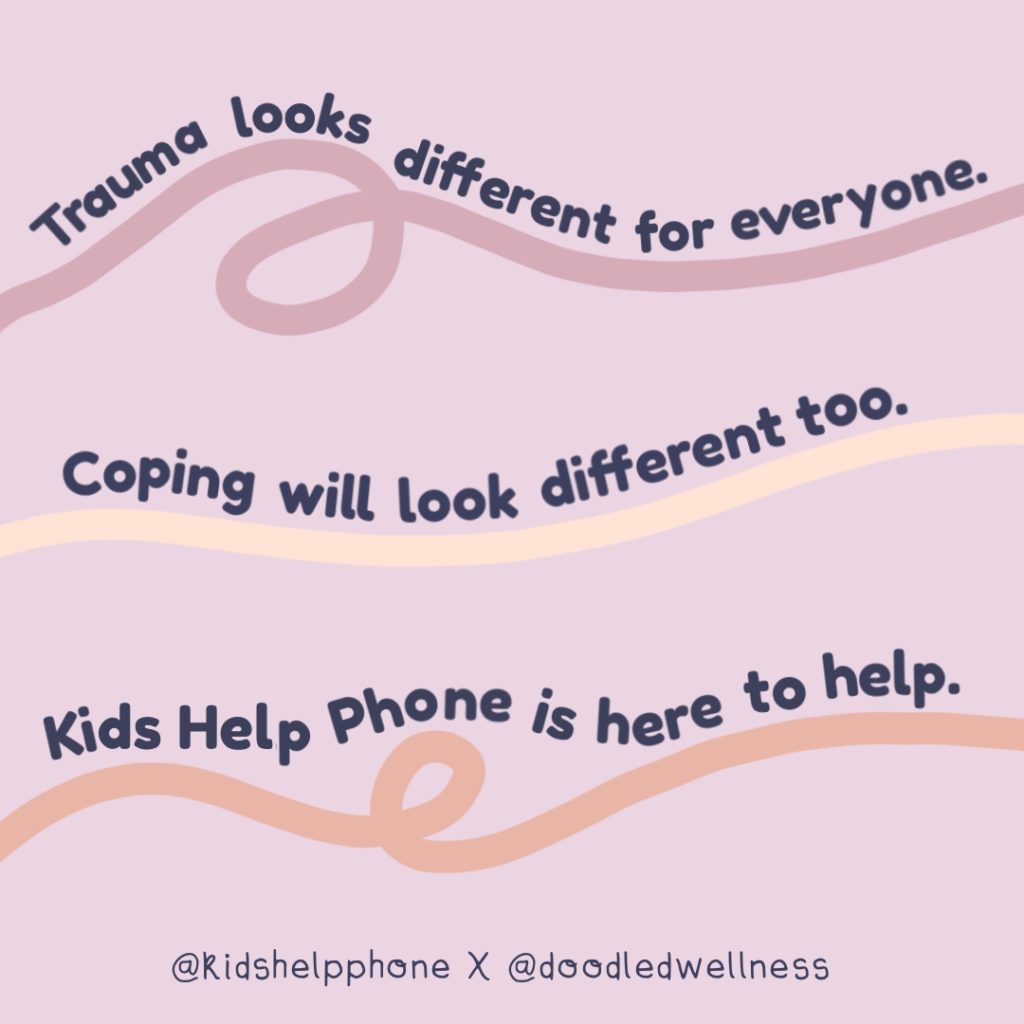Illustration credit: Amy Tran (@doodledwellness)
Your body and brain’s most important job is to protect you and keep you safe, and they have many ways to do this. Trauma is a word used to describe the body and brain’s reaction to a stressful event or situation. What the brain and body consider stressful is unique for everyone and causes different reactions in each person. Because of this, trauma can be hard to define and recognize — something that’s traumatic for one person might not be traumatic for another. No matter what you’re feeling, how you’re feeling matters, and your mental health is important. Here, Kids Help Phone shares information about trauma including potential causes, possible reactions and tools to cope.
If you need support at any point, Kids Help Phone’s e-mental health services are available 24/7.
What causes trauma?
Whether or not something is traumatic for you depends on how stressful your brain and body consider it to be. Something like a word, smell or picture can upset someone if it relates to a traumatic experience. For example, for many people, walking into the kitchen isn’t stressful. But depending on a person’s experience, walking into the kitchen could bring up strong reactions. If their parent / sibling thought it was funny to jump out and scare them at home, then walking into their kitchen could be a nerve-wracking experience.
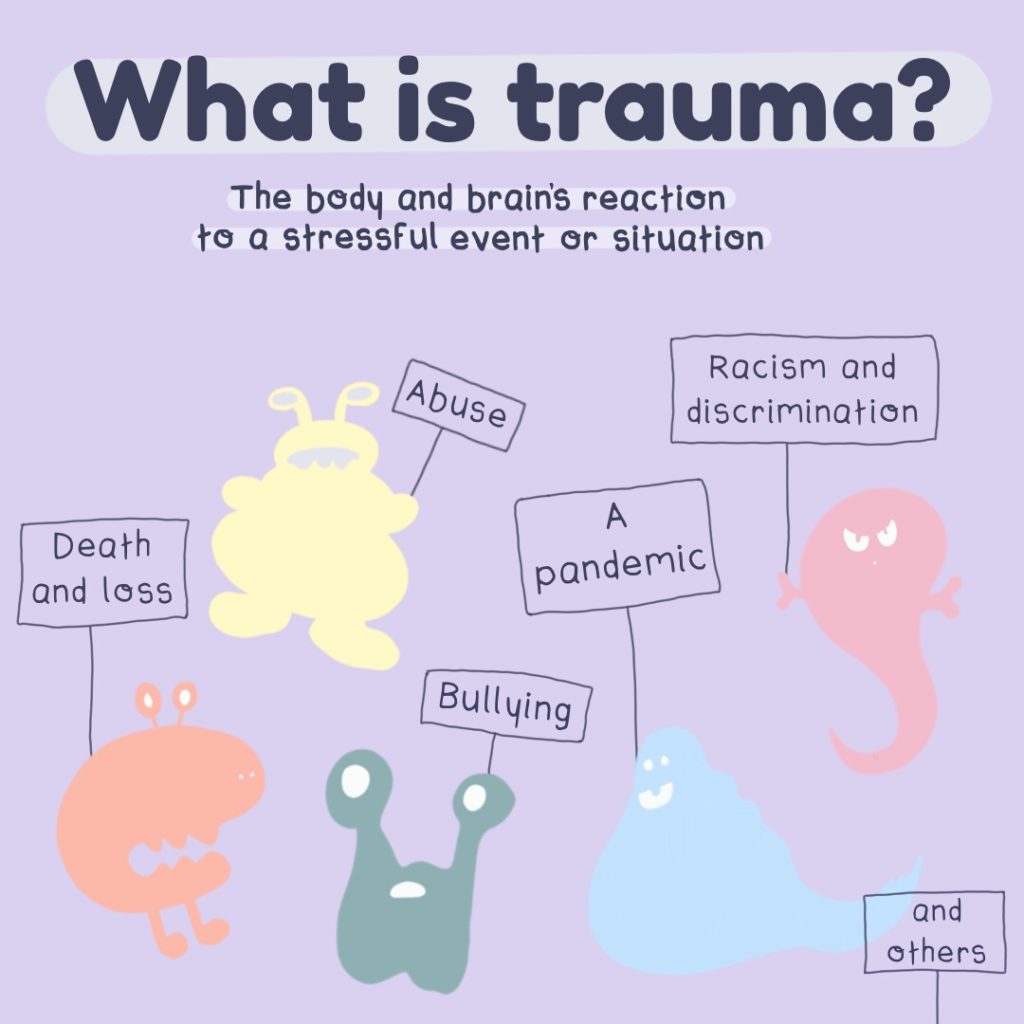
Trauma can occur in a situation that’s happening to you directly, in real time, but it can also occur when it feels like something dangerous, scary or unknown could happen. An example is the COVID-19 pandemic. Even if the virus hasn’t impacted you directly, the possibility that it could happen might be stressful for you.
Some events or experiences that may cause trauma include:
- abuse
- sexual violence
- death or loss
- racism, prejudice and discrimination
- illness, injury or medical procedures
- intergenerational trauma (where trauma is passed along from generation to generation)
- tragedy (such as climate disasters, political conflict, war, sudden accident, etc.)
- being forced to move or leave your home
- living in care
- bullying / cyberbullying
- experiencing a global pandemic
How does trauma feel?
Trauma can affect you in many ways, including the emotions you feel and sensations you experience in your body. One way you can feel and experience trauma is something called the “fight, flight or freeze” response. When your brain senses what it thinks is a threat, it tells your body to get ready to fight the threat, run away from it or stay still until the threat is gone. You might not even notice this is happening, because your brain and body do it automatically! You may feel anxious, like you want to run away, like you want to fight back, like you’re stuck or maybe you’re not sure what to do at all. These responses are meant to protect you from danger or harm and any and all of these reactions are valid.
When your body and brain are working to protect you, it can interfere with your daily life. For example, if your body is in freeze or fight mode and feels like it has to defend itself, you may have trouble doing other things like focusing on homework or having a conversation.
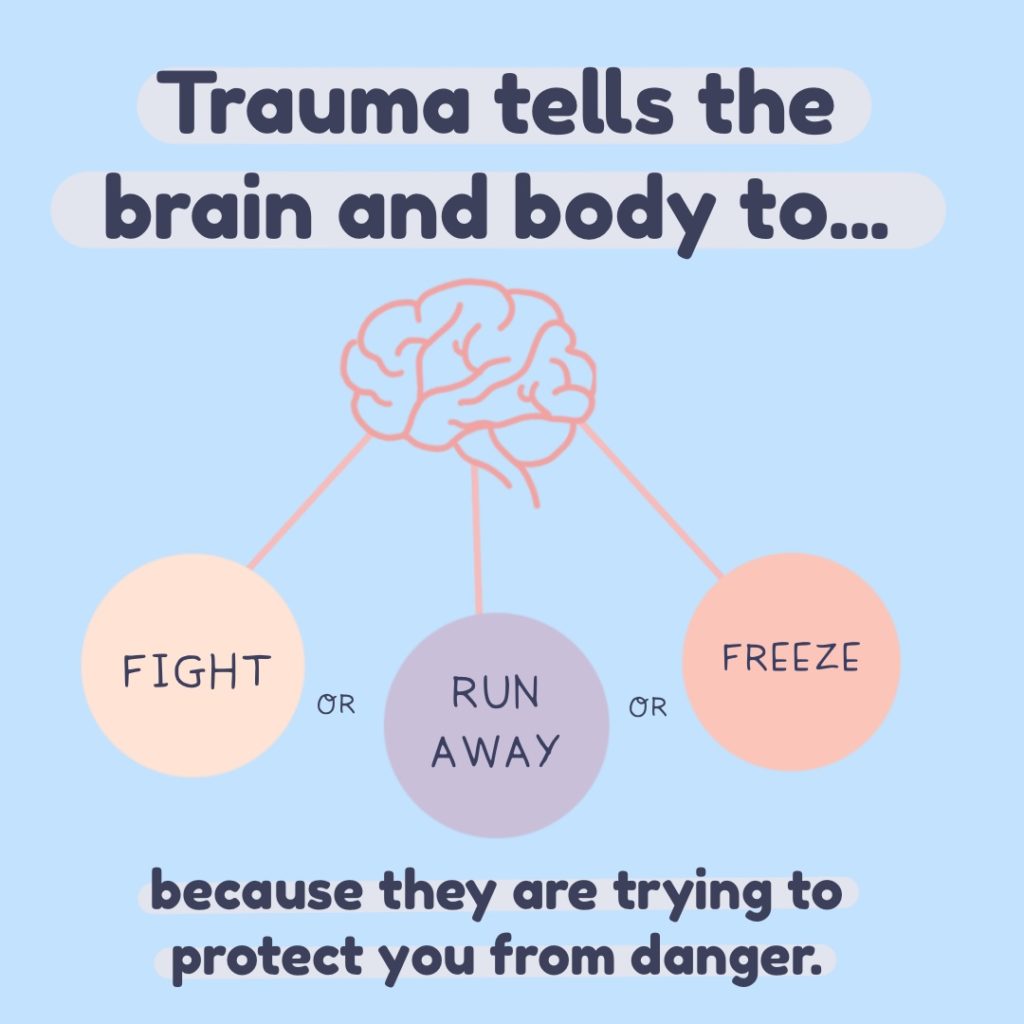
The fight, flight or freeze reaction is just one example of how trauma can feel. Each person’s response to trauma will look and feel different. Because of this, it can be hard to know if what you’re experiencing is trauma. The following are some more examples of responses you may experience:
Emotional responses can include:
- difficulty focusing or concentrating
- having nightmares or flashbacks
- losing interest in hobbies and activities
- fearing your surroundings or unable to relax
- avoiding things that remind you of the event
- difficulty developing or maintaining relationships
- withdrawing from friends and family
- a change in mood, including a variety of emotions (e.g. sadness, anger, anxiety, guilt, hopelessness, fear, shock, and others)
- self-injury and / or suicidal thoughts
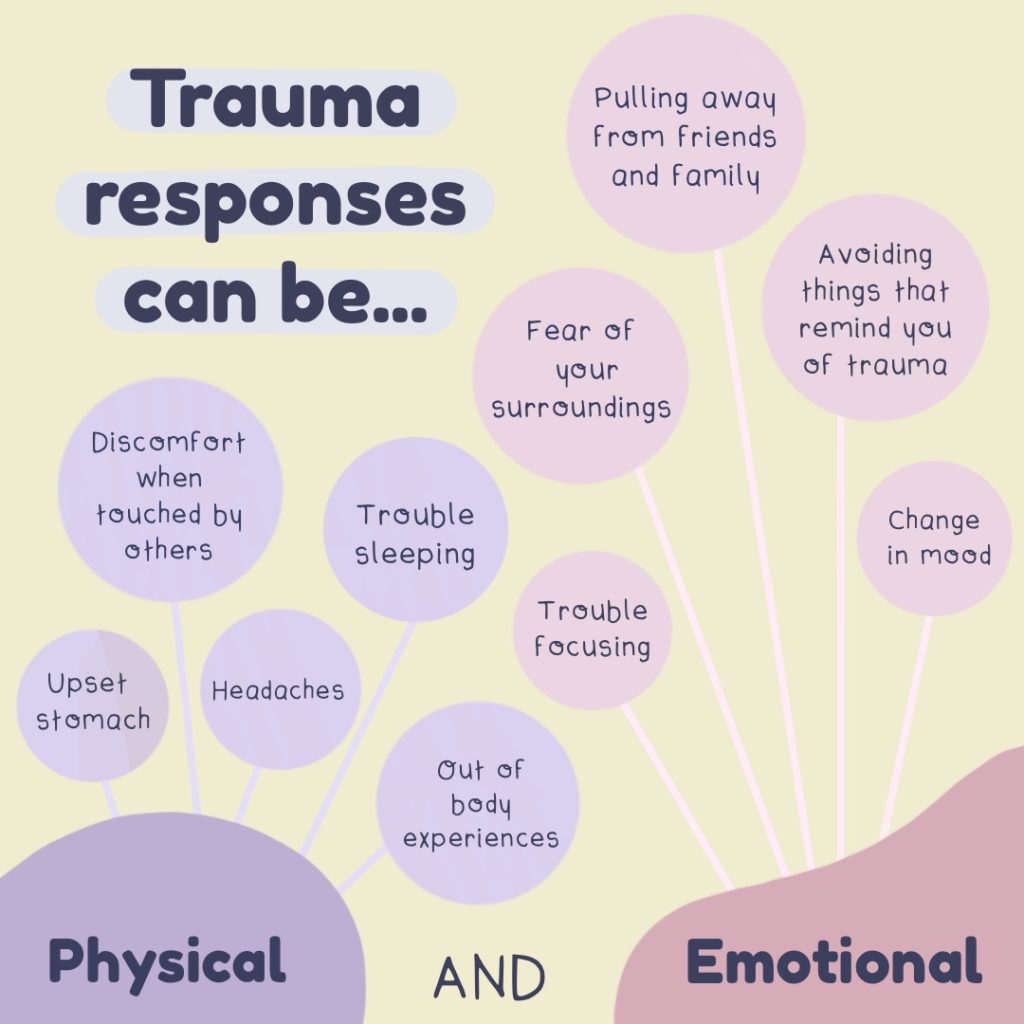
Physical experiences can include:
- feeling jittery, nervous or jumpy
- uncontrollable shaking
- feeling out of control of your body and / or in shock
- headaches
- nausea or upset stomach
- changes in appetite and weight
- trouble sleeping
- being reminded of the event(s) by a sound or smell
- discomfort when touched by others
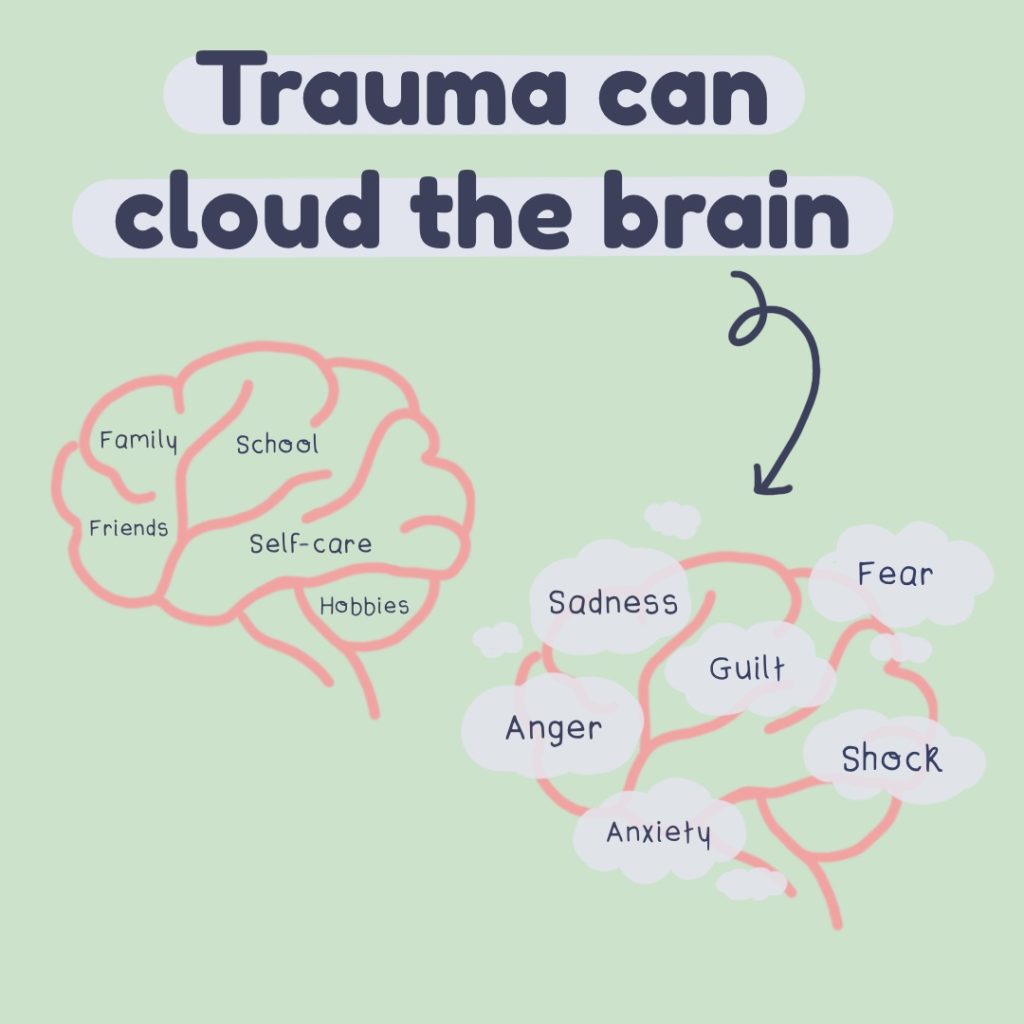
How can I cope with trauma?
Everyone copes with trauma differently based on their unique experiences. While it can take time to recognize trauma and find what helps you to manage it, your feelings and thoughts can get better as time goes on. Though the event or experience may remain a sad, scary or difficult memory, there are ways to process it and learn, grow and adapt over time. Your coping tools may also change over time.
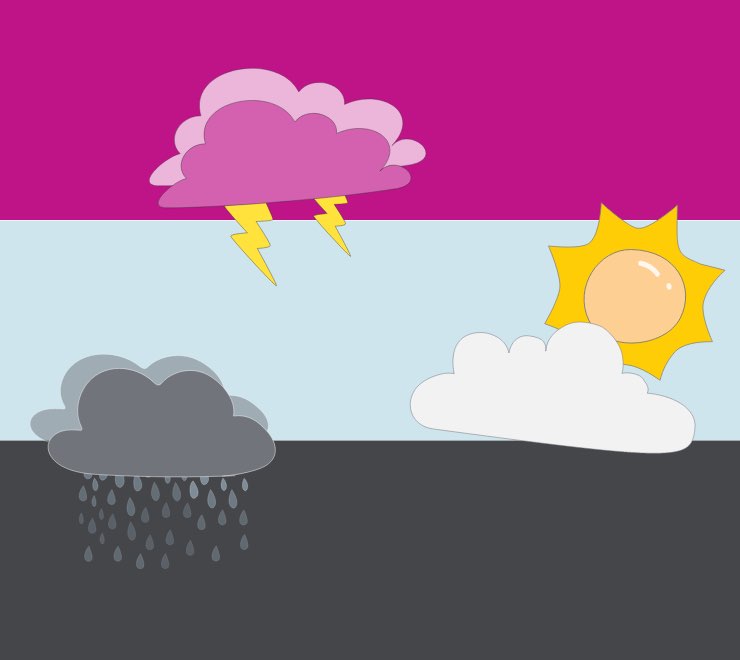
Name it to tame it
“Name it to tame it” is a strategy you can use when you’re experiencing strong feelings and emotions. When this happens, try pausing, taking a deep breath and naming the feelings. When you take time to name the feelings, it can help your brain recognize and process what’s going on. Naming your feelings can be simple phrases like “I’m feeling angry” or “I feel anxious in my body.” You can try describing what you’re feeling and labelling your emotions out loud or to yourself. When you have a clearer sense of what you’re feeling it can help you to figure out what you need. It can also help you tell others how you’re feeling and ask for support (if you want it). It can be helpful to know that you don’t have to navigate trauma alone.
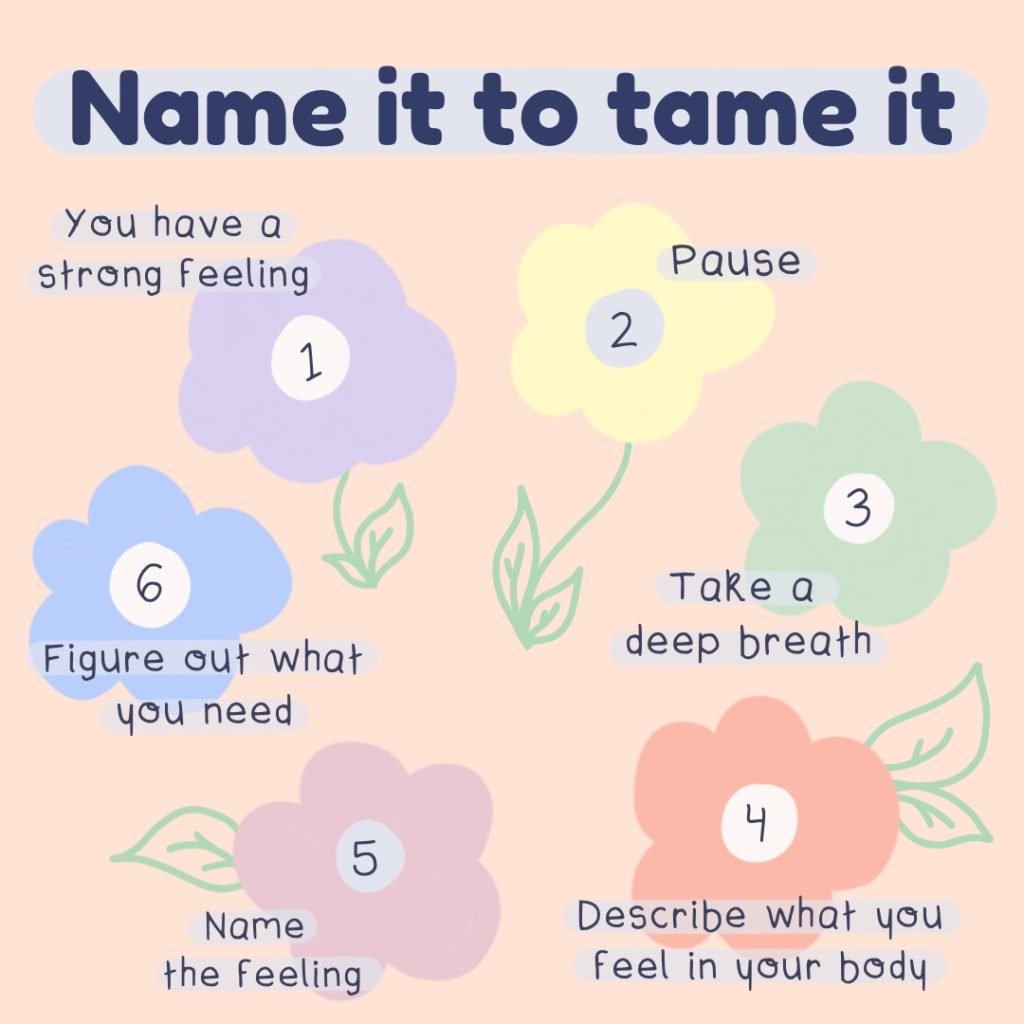
Other coping tools for trauma may include:
- speaking with a professional counsellor or therapist
- cognitive behavioral therapy to learn how to change unhelpful thoughts and behaviours
- connecting with people and community where you feel happy and safe
- practising self-awareness through guided activities or journaling
- making time for self-care and activities and hobbies you enjoy
- practising mindfulness through a breathing exercise, body scan or colouring activity
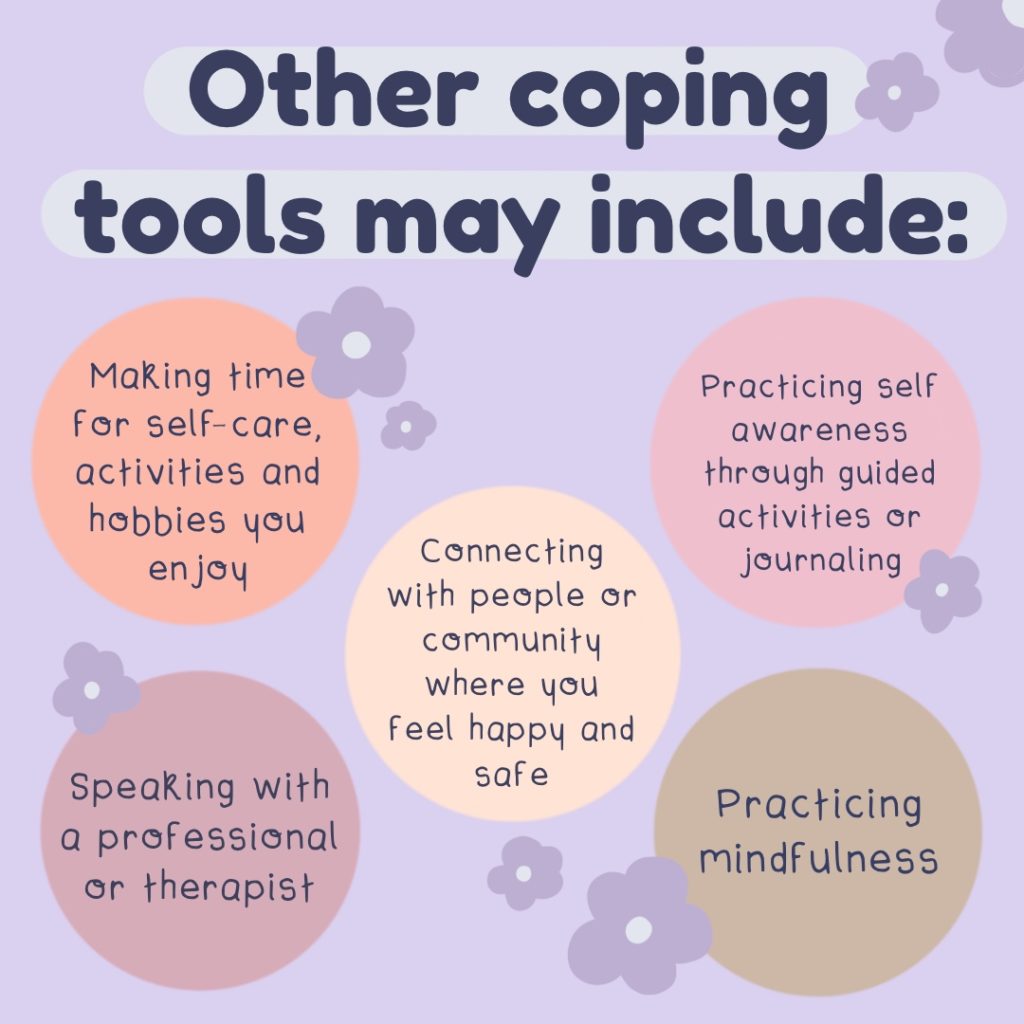
Trauma is experienced in many different ways and everyone’s healing process is different. Kids Help Phone is here to support you wherever you are on your journey. You can reach a professional counsellor by phone or Live Chat or connect with a volunteer crisis responder through text. You can also learn about other young people’s experiences through the Peer-to-Peer Community at Kids Help Phone.
